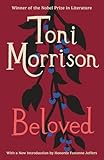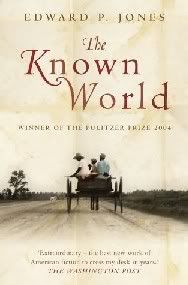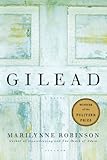 This Pulitzer Prize winning and critically acclaimed novel is very sad and includes many stories of horror and trauma. The persistence of memory and the past is part of the novel from a mother's obsessive overprotection to the reconciliation of people's past personal and with slavery as a whole: "To Sethe, the future was a matter of keeping the past at bay. The 'better life' she believed she and Denver were living was simply not that other one."
This Pulitzer Prize winning and critically acclaimed novel is very sad and includes many stories of horror and trauma. The persistence of memory and the past is part of the novel from a mother's obsessive overprotection to the reconciliation of people's past personal and with slavery as a whole: "To Sethe, the future was a matter of keeping the past at bay. The 'better life' she believed she and Denver were living was simply not that other one."The narrative shifts with a stream of consciousness writing towards the end of the book. It also reminded me of an even more twisted version of Oscar Wilde's The Portrait of Dorian Gray by that time.
It's a complex novel, but very beautifully written. I love the prose. It is difficult to read due to the story and plot, but the literary prose is wonderful. Morrison is also very adept at characterization. I get a total sense of these characters whether or not I agree or actually sympathise with them. She presents them so clearly and honestly. It is not a pleasurable read, and like many books literary books, it is not for everyone. It's difficult, but honest and well written.


 The Known World
The Known World


